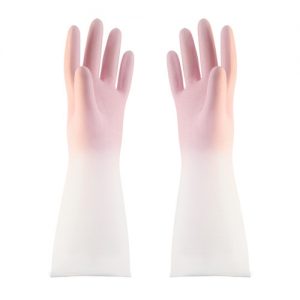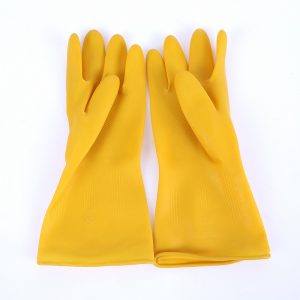A comprehensive guide to glove materials will help you understand the different types of materials used in making gloves, their properties, advantages, and suitable applications. Here are some common glove materials:
- Latex:
- Properties: Natural rubber material with excellent elasticity and flexibility.
- Advantages: Latex gloves offer good barrier protection against bacteria and viruses. They provide a snug fit and allow for excellent sensitivity and dexterity.
- Suitable Applications: Latex gloves are commonly used in medical settings, food handling, cleaning, and other general tasks.
- Nitrile:
- Properties: Synthetic rubber material that is latex-free and resistant to punctures and chemicals.
- Advantages: Nitrile gloves are an excellent alternative for those with latex allergies. They provide strong resistance to chemicals, oils, and greases.
- Suitable Applications: Nitrile gloves are widely used in medical settings, laboratory work, automotive industries, painting, and general cleaning tasks.
- Vinyl:
- Properties: Made from PVC (polyvinyl chloride) material, these gloves are cost-effective and latex-free.
- Advantages: Vinyl gloves are an affordable option for those with latex allergies. They provide basic barrier protection for light-duty tasks.
- Suitable Applications: Vinyl gloves are commonly used in food handling, light cleaning tasks, and general non-hazardous applications.
- Neoprene:
- Properties: A synthetic material with excellent chemical and oil resistance.
- Advantages: Neoprene gloves provide strong protection against a wide range of chemicals and oils.
- Suitable Applications: Neoprene gloves are commonly used in laboratory work, chemical handling, and applications involving contact with oils and grease.
- Polyethylene (PE):
- Properties: A lightweight and low-cost plastic material.
- Advantages: PE gloves are economical and suitable for short-term, low-risk tasks.
- Suitable Applications: PE gloves are commonly used in food service, handling light and non-hazardous materials, and general cleaning tasks.
- Polyvinyl Chloride (PVC):
- Properties: A synthetic plastic material with good chemical resistance.
- Advantages: PVC gloves provide protection against certain chemicals and are often used as an alternative to latex or nitrile gloves.
- Suitable Applications: PVC gloves are used in medical settings, chemical handling, and applications where barrier protection is needed.
- Cotton and Fabric:
- Properties: Cotton or fabric gloves provide a comfortable and breathable option for light-duty tasks.
- Advantages: These gloves are reusable, soft on the skin, and ideal for protecting against dirt and light abrasions.
- Suitable Applications: Cotton and fabric gloves are commonly used in gardening, light cleaning, and general household tasks.
Remember that the choice of glove material depends on the specific task, any allergies, chemical resistance requirements, and level of protection needed. Always consider the intended use and potential hazards when selecting the most suitable glove material for your needs.








